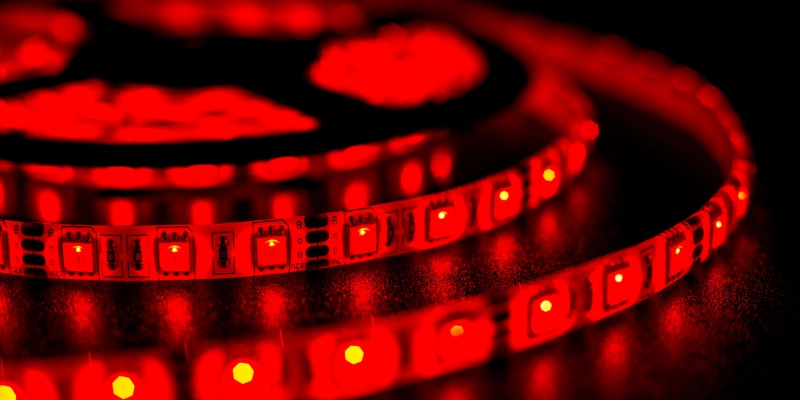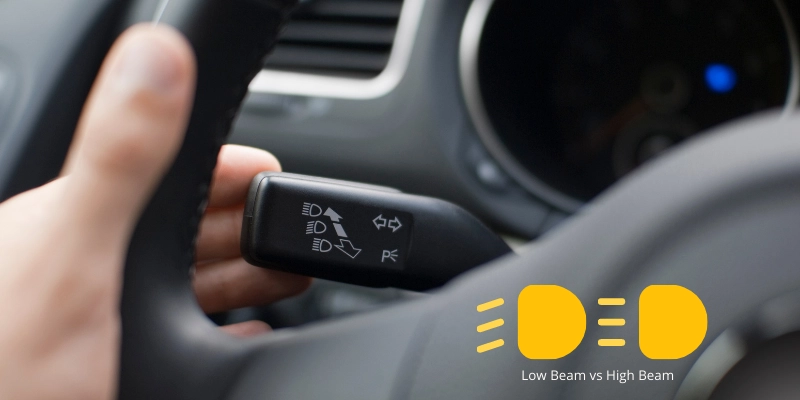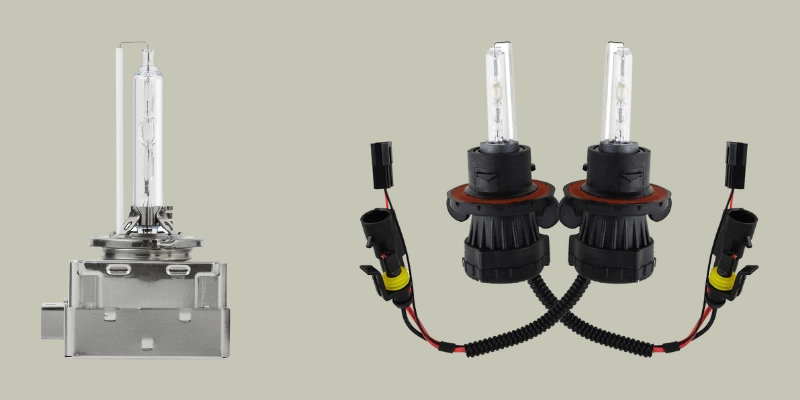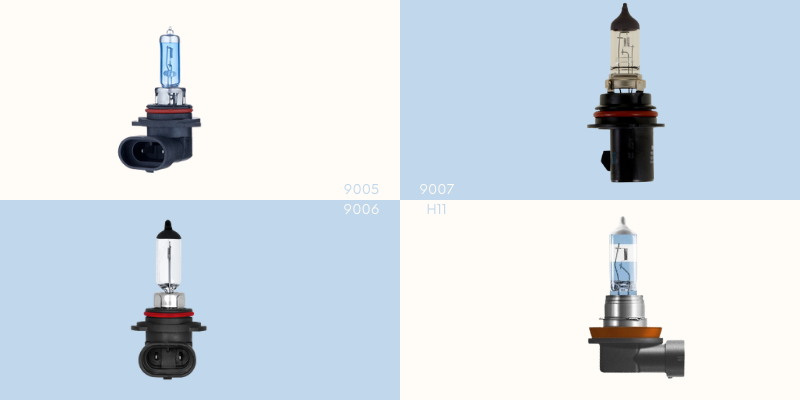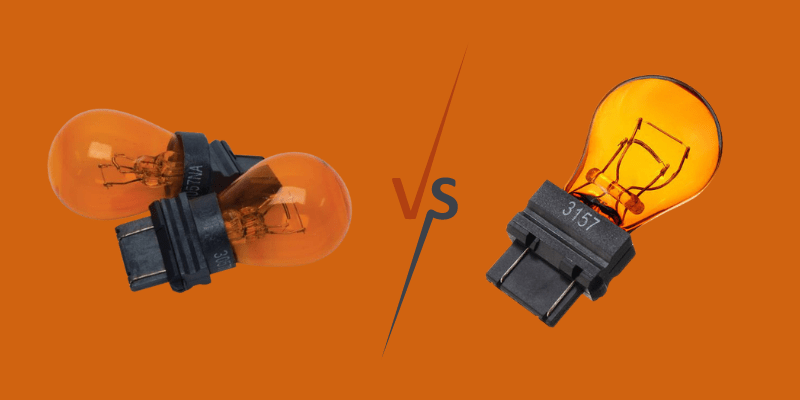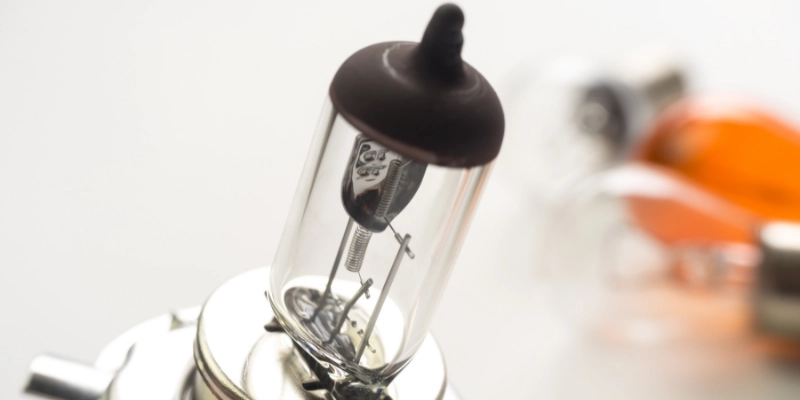The headlight market is evolving with the continuous invention of different vehicle headlights that better improve night visibility, and illuminate the way for safe night driving. This is where the LED vs Halogen vs Xenon headlights competition comes in.
Have you ever been curious about the benefit of your halogen, LED, or xenon headlight?
Well, you’re about to find out the pros and cons of each headlight, this way you’d be able to decide which one is better for your vehicle.
Aside from vehicle owners being stuck in deciding which of the three headlight types is best for them, the invention of brighter light like xenon is a threat to the relevance of others in the headlight market, especially halogen.
Still, this doesn’t mean xenon is better than others considering different road users’ preferences and the purpose of the headlight. Now to the question of which one is better and why.
LED vs Halogen vs Xenon
| Features | LED | Halogen | Xenon |
| Brightness level | High | Average | Very high |
| Energy consumption | Minimal | Wastes energy | High energy consumption |
| Cost value | Moderate | Cheap | High |
| Average lifespan | 30,000 hours | 1,000 hours | 10,000 hours |
| Heat generation | Less | High | Moderate |
Which is better: LED, Halogen, or Xenon?
Balancing efficiency, cost, and durability LED wins. LED consumes less power and lasts longer than xenon, and it has a brighter light than halogen. LEDs also generate less heat.
Nevertheless, each headlight has a unique advantage; while one may be more cost-effective than others, another could brighten the roadway better.
For instance, halogen bulbs cost less than LED or xenon, while xenon shines brighter than others.
When deciding which of these three headlight bulbs is best for your vehicle, users’ preference comes to play. This is why you need a deeper insight into the three; LED, xenon, and Halogen.
So, enough of the brief overview on these 3 types of bulbs. Let’s dive deeper.
Halogen lights pros and cons
Halogen headlamps are popular in the world of automotive. This is because they come cheaper than LEDs and Xenon headlights.
Halogen bulbs have a lifespan of 1,000 hours, and you don’t have to break a bank to pay for a replacement as they cost less – It will only cost you around $40. It’s also easier to replace them on vehicles.
This headlight generates about 3,200 and 5,000 color temperatures.
Unfortunately, it’s a significant disadvantage to vehicle owners who want a white glow from their headlamp. It is also one of the reasons halogen bulbs are becoming an option for vehicle owners and companies across the globe.
Supplementing the disadvantages, the halogen headlights are not energy efficient. For you to understand why and how let’s quickly see how the bulb works.
Halogen bulb has a filament that is made of halogen gas and tungsten. It brightens when an electrical charge hits the filament within it, making the tungsten heat up to about 2,500 celsius when it glows.
The bulb’s lifespan ends when the tungsten evaporates, leaving the filament disposed of on the glass. However, that’s a minor disadvantage compared to how much energy it wastes to heat up and radiate light.
Another disadvantage of halogen is how it reacts to different substances. For instance, touching the spare bulb during replacement could get the grease on your finger on the glass. Therefore, this can cause it to abnormally heat up and damage the bulb.
Nevertheless, this headlight comes with its advantages. Aside from being cost-effective for their fair illumination, they also come in various sizes – making them available for many vehicle models. In addition to its advantages, it’s dimmable.
Here’s an overview of everything we’ve been saying on halogen pros and cons
Halogen Headlight Pros
- Cost-effective
- Cheaper and easy to replace
- Available in different sizes
Cons
- It wastes energy
- Replacement requires extra care
- Short lifespan
Xenon lights Pros and Cons
Xenon, also called High-Intensity Discharge headlight, is being chosen as a more efficient option to halogen. Although they are usually found in high-end cars, there’s an increasing number of vehicles with this incandescent light.
Since they don’t use a filament, they last longer than halogen but less than LED and consume more energy than LEDs but less than halogen. They are also hotter than LEDs, and they get dimmer over time.
About 2 to 3 times brighter than the former (halogen), the incandescent bulb beams when an electrical charge goes into the xenon gas within the bulb. This current generates a bluish light or white light that is usually brighter than halogen or LED.
This makes it easy to drive on dark roads. However the bright light can blind oncoming vehicles, this is why drivers use the low beam instead of the maximum brightness. Aftermarket headlights of different shades are available for this headlamp.
Also, xenon is efficient considering the light it produces compared to halogen. Manufacturers are also starting to make different versions and sizes, making it available for different vehicle models.
Another advantage of xenon headlamps is their lifespan. Compared to halogen, these headlights have a longer duration of about 2,000 hours. Although they require more power to start but regulate at working temperature. They also use minimal power than regular bulbs.
However, all these advantages come with a price. The maintenance and replacement cost more compared to halogen headlights. They are also complex considering how they use ballast to regulate the voltage to make the headlamp function properly.
It’s also important to know that xenon may contain harmful substances like metal mercury. Many countries have placed strict regulations on this substance which in turn increases the cost of repair.
In all, the bright white glow may be disturbing for approaching vehicles, which in turn increases the accident rate more than technical faults and speed.
Here’s an overview of everything we’ve been saying on xenon pros and cons
Advantages of Xenon Headlights
- Drivers get better visibility making night driving becomes hassle-free
- Generates brighter light than halogen lamp
- Lasts longer than halogen
- Consumes less power
Cons
- The bright light can blind approaching vehicles and cause an accident
- It takes a few seconds to generate full light.
- May contain harmful substances
- It costs more
LED Headlights Pros and Cons
LED bulbs are usually white and brighter than halogen, but lesser than xenon light. However, they are smaller and can be adjusted in various patterns.
Explaining how these bulbs work is quite technical. However, it relies on negative electrons to function. The bulb produces light when the electrical charge goes to the semiconductor.
LEDs are also more efficient compared to halogen or xenon. They generate less heat and last longer than halogen or xenon, although they also become dimmer over time.
Another significant advantage of LED light is energy consumption. Unlike halogen and xenon, they consume less energy. This is one of the reasons this type of light is dominating the headlight market.
LED rays are often more focused, and considering their small sizes, headlight manufacturers are making them in different sizes and shapes that match their vehicle models.
However, there are still some disadvantages of this headlamp. Although LEDs don’t generate heat, still, they heat up at the end of the emitter when electrical charges go through. This could be catastrophic for cables around it, and that’s why they require cooling systems such as fans or heat sinks.
Here’s an overview of everything we’ve been saying on LED pros and cons
Benefits of LED Headlights
- Consumes little energy
- They come in small sizes and different shapes
- Brighter and efficient than halogen
- Produces warmer color temperature than Xenon
Cons
- The high temperature generated at the end of the emitter
- Cost more to produce
- They cost more than halogen
FAQs
Is xenon the same as halogen?
What is the difference between xenon and LED?
Are laser headlights better than LEDs?
Do xenon lights fade over time?
Do LED headlights run hotter than halogen?
Conclusion
Understanding the differences as well as the advantages of each headlight will help vehicle owners decide the best one for their road trips.
You may go for halogen light if you can’t afford the maintenance cost of LEDs.
However, remember that halogens have a shorter lifespan than xenon or LED, and it will cost you twice or more for an equal amount of LED or xenon lifespan.
 Skip to content
Skip to content
